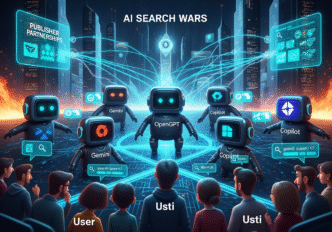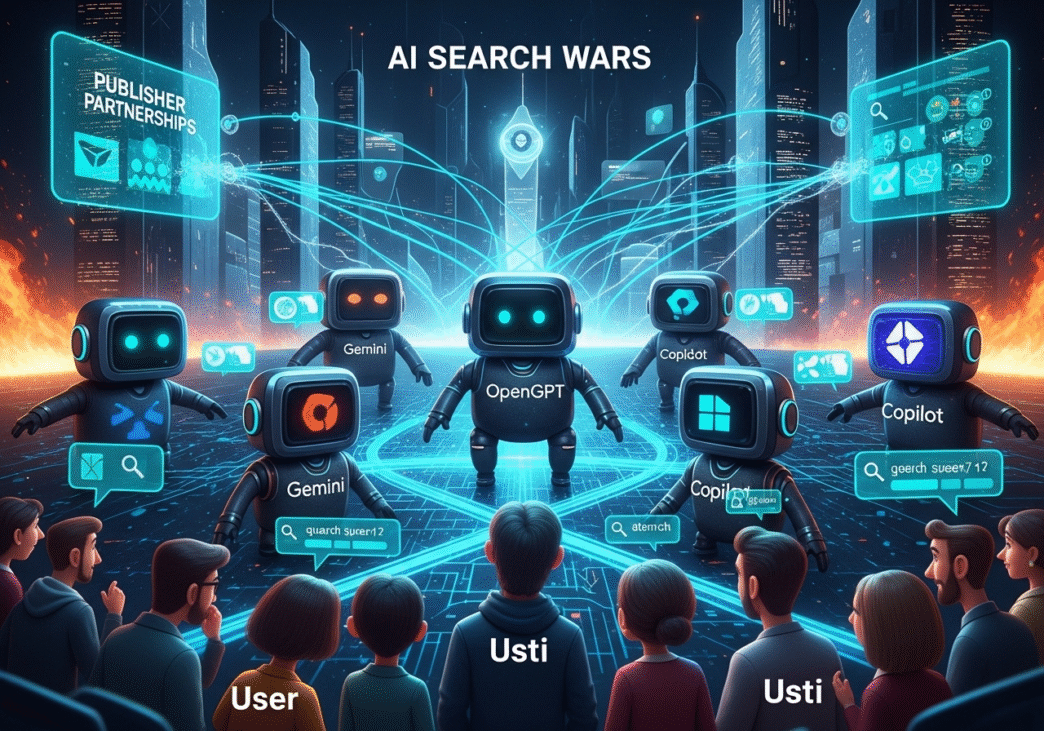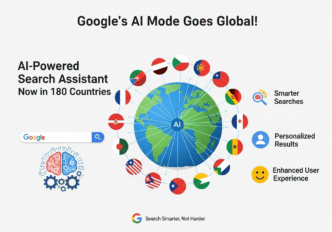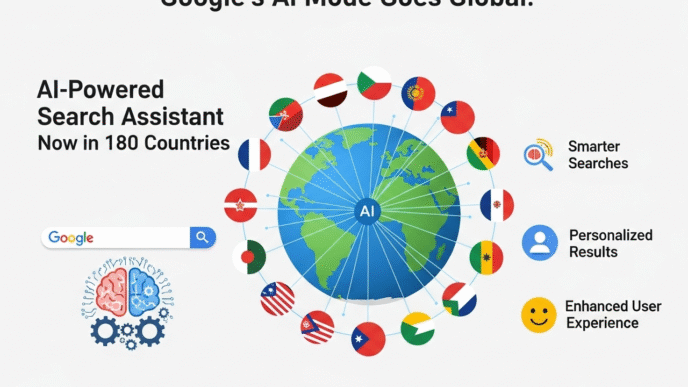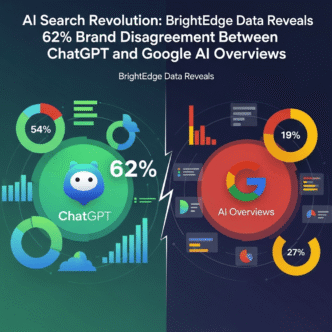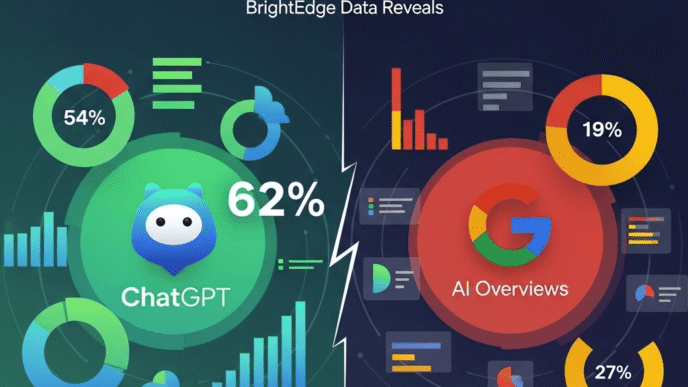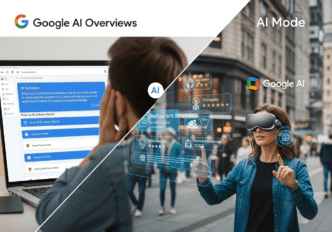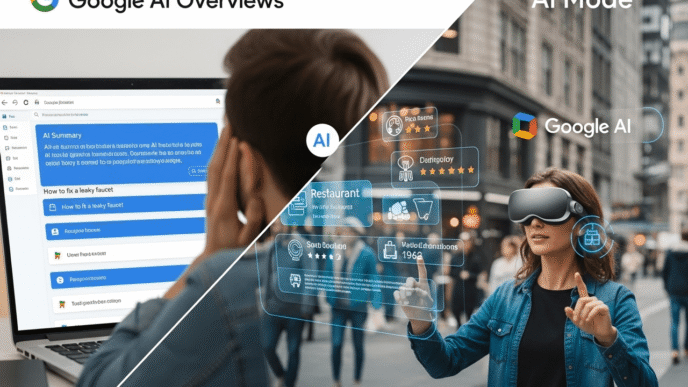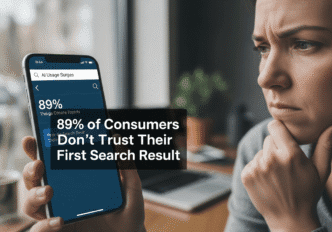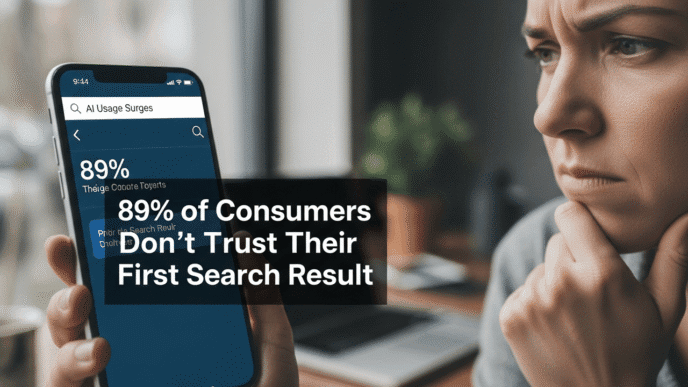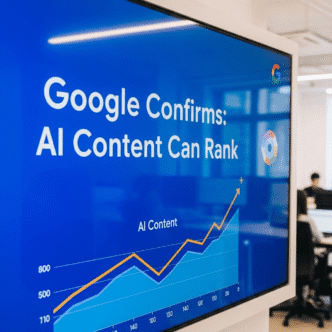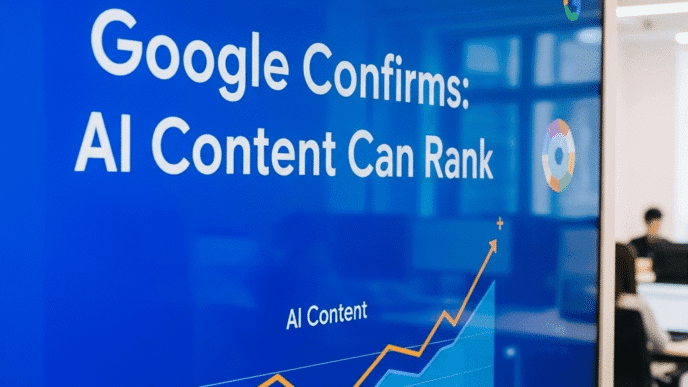Table of Contents
ToggleAI Search Wars Heat Up as Models Compete for Publisher Partnerships and User Attention
Breaking: The battle for the future of search is intensifying as tech giants and AI startups forge new alliances with news publishers while fighting for market dominance
By [News Reporter] | August 15, 2025
The artificial intelligence search landscape is experiencing a seismic shift as Google’s decades-long dominance faces unprecedented challenges from emerging AI-powered platforms. For the first time since 2015, Google’s search market share has dipped below 90%, while competitors like OpenAI’s ChatGPT, Microsoft’s Bing, and Perplexity AI are rapidly gaining ground through innovative publisher partnerships and revolutionary user experiences.
The New Battlefield: Publisher Partnerships
The most significant development in the AI search wars is the emergence of revenue-sharing agreements between AI companies and news publishers. Unlike the traditional model where search engines provided traffic in exchange for content access, these new partnerships offer direct financial compensation.
Perplexity AI has emerged as the leader in publisher relations, expanding its Publishers’ Program to include over 30 media organizations across 25 countries. The platform promises “double-digit percentage” revenue sharing when their content is referenced in AI-generated responses. Recent additions include The Los Angeles Times, The Independent, ADWEEK, and Germany’s Der Spiegel.
“We would not be able to serve factual, valuable answers without news organizations continuing to report on different topics,” says Jessica Chan, Head of Publisher Partnerships at Perplexity.
OpenAI has taken a different approach, striking major licensing deals with 30 significant media brands including Condé Nast, The Atlantic, Vox Media, and Time magazine. These partnerships provide OpenAI with training data for their models while offering publishers access to ChatGPT’s growing user base of 400 million weekly active users.
Google, meanwhile, has been notably absent from the publisher revenue-sharing movement. Recent court documents revealed that the search giant drew “hard red lines” around requiring web publishers to participate in AI search features, offering little choice to content creators about how their material is used.
Market Share Shifts Signal New Era
The data tells a compelling story of disruption. According to StatCounter, Google’s global search market share has consistently remained below 90% throughout most of 2025, marking a historic decline from its previous dominance. Microsoft’s Bing now commands 4% of global search traffic, while AI-native platforms are experiencing explosive growth.
ChatGPT has reached remarkable scale with 400 million weekly active users and processes over 1 billion queries daily. The platform’s search functionality, launched in late 2024, has captured an estimated 1% market share and continues growing rapidly month-over-month.
Perplexity AI has seen extraordinary growth, with traffic increasing 524% in 2024 and the platform now handling 780 million queries monthly. The company recently raised funding at a $9 billion valuation despite generating only $50 million in annual recurring revenue.
The Publishing Industry’s Dilemma
News publishers find themselves at a crossroads between embracing AI partnerships and protecting their traditional revenue streams. Research from Bain & Company reveals that 80% of consumers now rely on AI-written search results for at least 40% of their queries, reducing organic web traffic by 15-25%.
The impact on publishers has been dramatic. The Wall Street Journal’s share of overall search traffic fell from 29% to 24% over the past three years, while The New York Times saw its organic search traffic decline from nearly 44% to 36.5% by April 2025.
“Some media companies worry [Google’s AI Overviews] could slash their organic search traffic by as much as 60%,” reports suggest, as users increasingly get information directly from AI summaries without clicking through to source websites.
Legal Battles and Copyright Concerns
The rapid adoption of AI search has sparked a wave of litigation. The New York Times, Dow Jones, and the New York Post have filed copyright infringement lawsuits against various AI companies, with Dow Jones labeling Perplexity’s practices as “content kleptocracy.”
Forbes and Wired have accused Perplexity of plagiarizing their paywalled content, while other publishers argue that AI platforms are creating unfair competition by reproducing their journalism without proper compensation.
Despite these challenges, some publishers see opportunity. “Fortune believes publishers need to be actively involved in ensuring our valuable content is used, attributed, and compensated for appropriately,” said Patrick Reilly, a spokesperson for Fortune.
User Behavior Revolution
Consumer search behavior is undergoing fundamental changes, particularly among younger demographics. According to recent surveys:
- 82% of Gen Z users have tried AI search tools
- 71.5% of all users report using AI tools for search purposes
- 60% of searches now terminate without users clicking through to another website
- AI search adoption is highest among professionals and students
However, traditional search engines maintain advantages in specific areas. Users still prefer Google for general information queries, while AI tools excel at product comparisons and complex research tasks.
The Strategic Stakes
The battle for search dominance extends far beyond market share. Control of search means control over how billions of people access information, making it a critical strategic asset. The U.S. Department of Justice’s ongoing antitrust case against Google specifically addresses concerns that Google’s search monopoly could extend into AI development.
“If you look at search as a product today, you can’t really think about search without thinking about AI,” says Alissa Cooper, executive director of the Knight-Georgetown Institute.
The financial stakes are enormous. Microsoft reported that its OpenAI partnership cost $1.5 billion in quarterly profits, while OpenAI expects to spend $5 billion this year on computing costs alone.
Editorial Analysis: A Fundamental Shift
The AI search wars represent more than technological competition—they signal a fundamental transformation in how information flows through society. The traditional model of search engines directing users to publisher websites is giving way to AI platforms that synthesize and present information directly.
This shift raises critical questions about information quality, source attribution, and the sustainability of journalism. While AI companies promise more efficient information access, publishers worry about losing both traffic and revenue that fund original reporting.
The emerging publisher partnership models offer hope for a more symbiotic relationship, but success will depend on fair compensation structures and maintaining incentives for quality journalism. Perplexity’s revenue-sharing approach appears more publisher-friendly than traditional licensing deals, but the actual financial impact remains to be seen.
For consumers, the AI search revolution promises more conversational, context-aware information discovery. However, concerns about accuracy, bias, and the concentration of information power in AI platforms warrant careful monitoring.
Looking Ahead
As this report goes to press, several key developments bear watching:
Google’s Response: The search giant has remained largely silent on publisher revenue-sharing while facing mounting pressure from competitors and regulators.
Regulatory Action: The DOJ’s remedy phase in its Google antitrust case could reshape the entire search landscape.
Publisher Adaptation: How quickly and effectively news organizations adapt to AI-driven information consumption will determine their survival.
User Adoption: Whether AI search tools can maintain growth momentum beyond early adopters will determine long-term market dynamics.
The AI search wars are far from over. While Google retains massive advantages in infrastructure, data, and user habits, the rapid evolution of AI technology and changing consumer preferences have created the first real challenge to its search dominance in over two decades.
Sources and External Links:
- Google Publisher Deals Report – AdWeek
- OpenAI ChatGPT Search Launch – VentureBeat
- Publisher “Extinction-Level Event” – NPR
- Perplexity Publisher Program – Official Blog
- AI Search Market Analysis – AllAboutAI
- Google Market Share Decline – ContentGrip
- Bain & Company AI Search Research
This report synthesizes information from multiple sources and ongoing developments in the AI search industry. Market conditions and partnerships continue to evolve rapidly.

